
My guest for today is Nadine Sayegh, born in Beirut to Palestinian father and a Syrian mother. Nadine grew up in Vienna, where she’s today based. She followed a French education, studied business administration at McGill University in Canada, and worked for over 20 years as a manager for Coca-Cola in Europe, in the areas of finance, risk management, and human resource. She now runs together with her husband, one of Vienna’s largest laboratories. However, it is her latest achievement that drove me to meet with her. Today, I have just put down her incredible new book, oranges From Jaffa, a true story and a historical document. It captures the coming of age of Nadine’s father Nicola Sao Blissfully growing up in the ancient Arab city of Jeff in the 1940s. As Nadine describes it, it is really the story of a Palestinian Tom Sawyer, whose entire existence and the existence of the society he grows up in. Comes crumbling down in the spring of 1948. Nadine, it’s such a pleasure to be meeting with you today. You’ve mentioned already that you’ve been working on this book for many years now.
In fact, I’ve been wanting to write this book for a long time, but for lack of time I haven’t been able to really complete it. The truth is I started writing it when I was, it was during my maternity leave, my last maternity leave 10 years ago, that’s when I really got serious about writing it, and I had a bit of time because it was working less, but it took me 10 years until I finally got through the entire story thought about how to make it interesting for other people to read. I don’t want it to be a sad story because in the end it is not. So all in all between, you know, the desire to do something and then finally seeing it come into fruition, I have to admit, 10 years have. But I’m very happy that finally book is out. It’s out in German and there is an an English translation underway.
The book basically traces the daily life of young Nicola, who happens to be your father. He is the narrator in the book, and the events are set out against this idyllic background of Jaffa, Palestine before 1947. So we get details of his daily life, the established society back then. He’s surrounded by a family that is very close knit and loving and surrounded by a whole community of neighbors, Muslims, Christians, different backgrounds. And we have the feeling throughout the book that was a bit like a Paradise before Conflict. What made write do it?
The answer is very simple. It has to do with the fact that I live in Vienna now. You see, Vienna is a city that is historically very important also for the Second World War. I was born in Lebanon, but raised in Austria. I’ve spent my entire school time thinking and hearing about the responsibility of the Austrians in the Second World War and what they have done to other people, and I’m acutely aware of these atrocities. However, at the same time, I was raised in Vienna in the 1980s to a Palestinian father who tells us about his childhood in Jaffa. These were our bedtime stories. So, I grew up aware of this repentance and atonement for what happened in Second World War and aware of what has happened in Palestine, which was not talked about. You will see on the news that there is conflict in this area of the world, but nobody really understands why. Europeans tend to think that it’s a religious conflict, when in reality it is not, it has absolutely nothing to do with religion. At least that’s not how it started. And I realized also that this topic was also not talked about in schools. So how is the average central European person supposed to understand this conflict, what has really happened in this area of the world in 1948 ? What you often hear about Palestine is that it was a land with no people, for a people with no land. This is really a very big propaganda lie, I have to say, because just by virtue of being the daughter of my fathe, I know that it was not a land with no people. It was actually a land with plenty of people. And these people actually had a very good life before it came to an end.
From reading your book we understand that there was already an established society with its institutions and a very strong sense of identity.
Very much so, especially locally. There's little support, financial support, governmental support in the region, except for the Gulf where there is more support. But we have such a plethora of talent and art from a very very long time ago. I mean, Iraqi artists have been known for decades and decades. And the entire region, I mean, from North Africa to the Gulf, to our region, to the Levant. There's a lot of talent and we want to showcase that. We want to show that to the world.
I tried to make it a point to insist on that. For instance, in the first chapter of the book I explained that my father and his friends were rascals getting into trouble all the time. While playing football they break the wind of a Palestinian policewoman in 1947. This was not a society that bars women from jobs like the police. This was a society who has a police and female police officers.Or for instance when my father got into a fight with somebody in school and the fight degenerated and it had to go to to a juvenile court. So they had institutions, under the British mandate nonetheless, but they had a functioning society where you take people to court and this is where things are decided. Again, just to underline the fact that this was not an empty land waiting for somebody to come and civilize them because they had no means of civilizing themselves.
I mean, I felt a lot of things reading the book, but I felt there was an emphasis on a system of values in place.You spoke about the do‘s and the don’ts and what’s acceptable and what’s not. There is a sense of brotherhood between the different religions. There are very strong sense of tolerance between everyone, and you insisted on that. You made it very clear that these families considered themselves as, you know, part of one community and very strong bonds, very strong friendships were present. They were not separated by religious considerations because thanks to that shared system of values..
I think that as Arabs we have a language in common and a culture in common. We might not have the same religion. I think that Palestinians are misunderstood. I think that Arabs are misunderstood and they’re particularly misunderstood, I think, in the eyes of Westerners. They don’t realize that we have 22 different Arabic countries, as diverse as they can be. Looking at the European Union for example, how can you compare somebody from Finland to somebody from Greece? However, when you speak of Arabs, people do think of a certain type. They think of a homogenous group, and in fact we’re very heterogeneous. And when it comes to Palestinians in particular, the propaganda has been such that if you say Palestine, you think stone throwing youth, women wailing, backwardness, submissiveness, religious strife. This is not how I see Palestinians. We know, of course so many other Palestinian families, who are very similar to us. We have many Muslim friends who differ to us only in their religion. They dress and eat the same as we do, they even live in similar houses, with similar furniture, which is funny.. and send their children to the same schools. We even have similar names. In some cases, what I see on the news is not a proper representation, I believe. It seems to suit a purpose because when you represent us, in fact, as not refined and not being worthy of compassion and empathy, it is easier to treat us badly and to justify treating people badly because they’re so different from you. It makes it acceptable to distrust us and marginalize us as well. When I meet someone, I always hope that they won’t ask me too much about my background because it bores me myself to have to introduce myself and justify myself. Also, I think it is so much more comfortable to be able to blend into a society and not to have to introduce yourself and explain why you happen to be in Vienna etc.
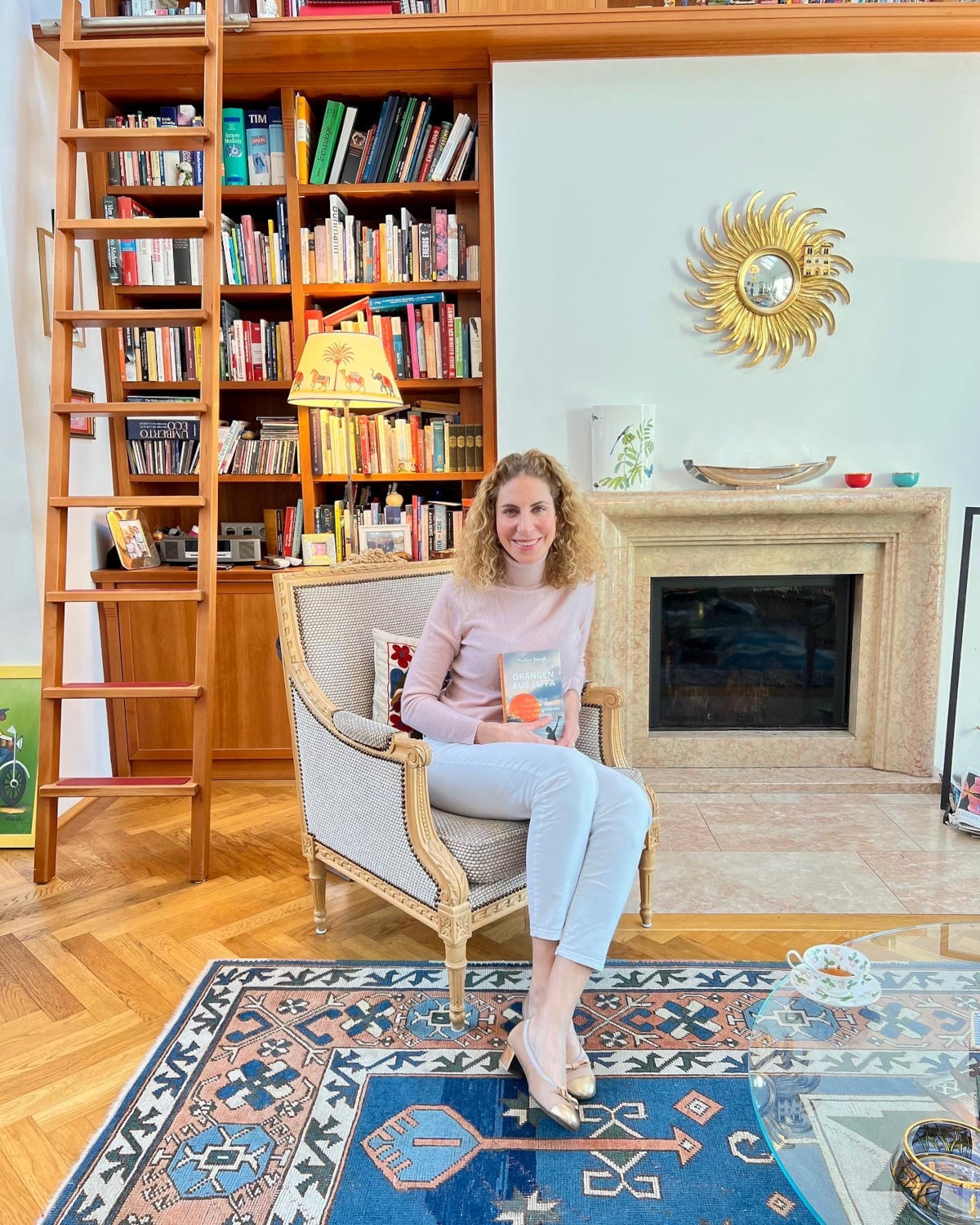
Do you feel that it empowers you? Do you feel that that difficult experience that your father, that your family had to go through gives you power on some level?
I just see it as part of who I am. It is an aspect of who I am. I, I don’t see it in terms of Power. I just think that had I not been Palestinian, but just a regular Austrian, my life would’ve been a little bit different, of course, but maybe not that much because you are born with certain looks and certain health and certain personality. It is just that my areas of interest would’ve certainly been diverted into something else, but I strongly believe in the personal responsibility that each and everyone has. And that as a sole person, you can have an impact if you believe that something is important enough to to speak about. My father is 85 today, and he belongs to the last generation of people who were born in Palestine when it was Palestine. And once this generation is gone, that’s it. There will be no more time witnesses.
But by telling the truth, by insisting on the importance of telling that truth, there is hope for that narrative to live on..
I think so. And I think that we can learn from many other cultures. As I said, other cultures have witnessed absolutely horrific things, and they say, We shall never forget. We may forgive, but we shall never forget, and this is why they use their elderly people who have survived terrible things to go and tell their stories so as to make sure that this will never happen again. Of course, now we have an elderly generation who can also speak for themselves and say, look, this is how it was. Regardless of what you see on television and what propaganda tells you, et cetera, please go and visit the archives or listen to me, I‘m a time witness.. I can tell you about how life was in Palestine, how our culture was. Palestinian culture is in fact greatly at risk of being erased. If you go to Jabal Arak Tinji where my father grew up, there’s not a single street name that hasn’t been changed. It was actually not so easy to find the house my father grew up and Tel Aviv has become such a big city that Jaffa became a sort of a suburb of it or something when in fact Jaffa was a purely Palestinian city that has been there forever.
You capture an era with its spirit and scent. And while I was reading the book, I could almost smell orange blossom all throughout .. and towards the end of the book, when you take the trip to Jaffa with your father and son your father says that that orange blossom smell is gone..
I think that is an untold story because until now when you talk about Palestine, everybody dwells on the conflict and what happened in the aftermath of the nakba. But very few people, or at least that I’m aware of, have taken the time to retell the story of how these people used to live. Now, while it is true that the scent of orange blossoms is gone reall, it smells of nothing there, It is still a beautiful place with the art deco villas now owned probably by other people. The smell might be gone but the culture stayed. For instance, I love to watch my father peel an orange the same way his father used to. So these are people who come from an orange orchard owning family.They have a specific relationship to their fruits. So, I have never seen somebody peel an orange in such a skillful and beautiful way like my father, really. And so while, yes, the smells are gone, but some things remain. I find this so typical also of Arab generosity, a strong aspect of our society and culture. We are a very warm culture, If you want to set aside all the conflictual sides that override everything and hide the, the beautiful aspects of our culture. Our culture is full of warmth and hospitality, and there’s many things that relate to what I describe as Zooq or tact in the book. Making sure that you do not talk about conflictual things, using and extremely flowery language.
Nadine, was it important for you to transmit these values to your children?
I think so, because for one thing, my, my children speak Arabic. They can also read and write Arabic because I’ve made sure that we have a teacher that comes once a week. So yes, my children are half Arab, half Austrian. Our family language I have to admit is German, but I have to say that the values that are important to me such as Hospitality, politeness, warmth is certainly something that I think we have passed on. I also think that Austrian have a whole set of wonderful values by which they also live. So I think that really also enriches our family. But I was moved once when my children ask me if they could add my family name to their. It was flattering. As much as I tried to erase my Palestinian identity when I was growing up, my children are proud of their identity, they actually say that they’re half Palestinian, half Austrian, when in fact they are only quarter Palestinian to be frank with you (laughs)

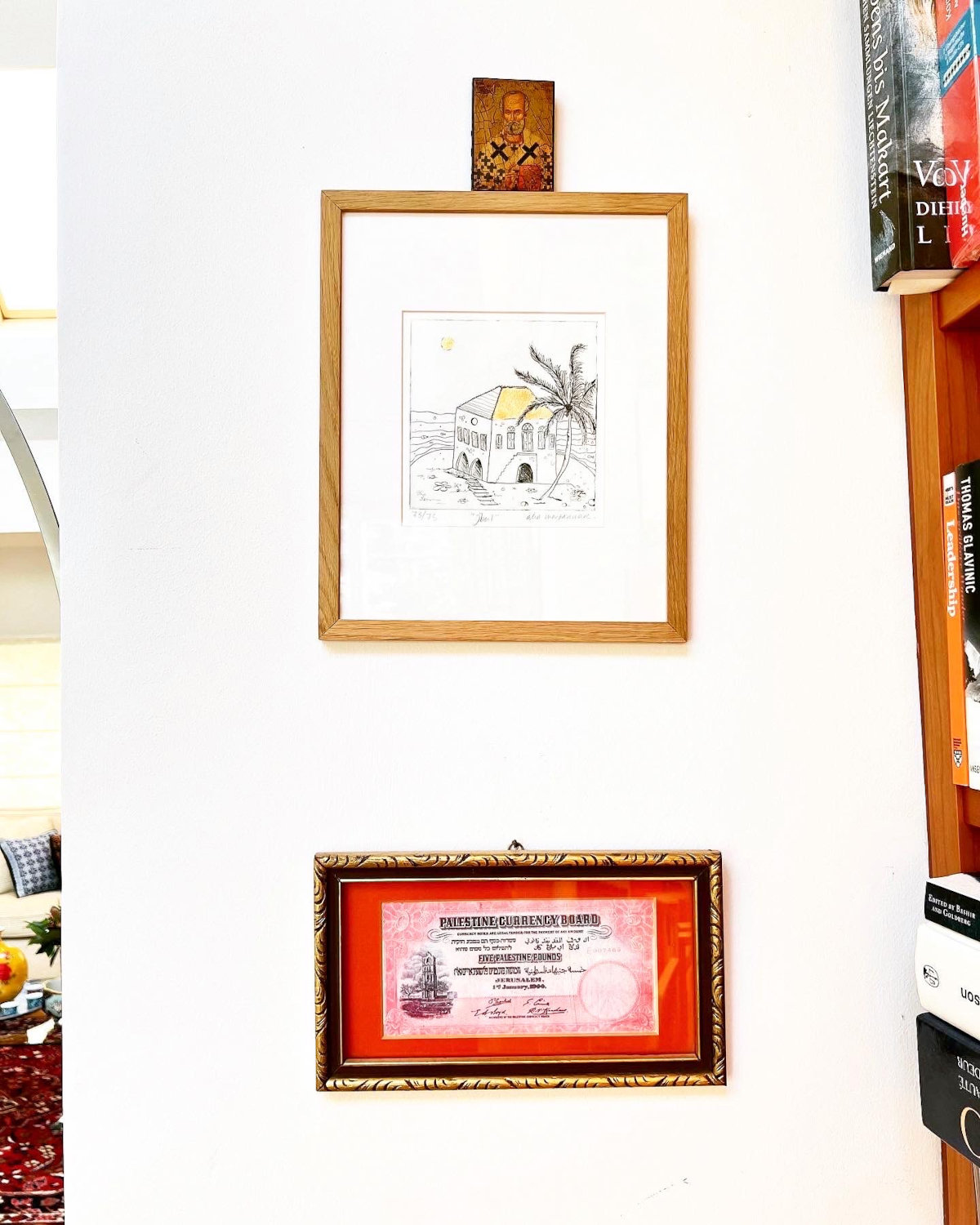
Who are your role models?
I think you can have role models, but you also need supporters. So to be frank with you my supporters were my parents. My mother told me to make sure that I’m financially independent as a woman. She was the one who pushed mostly for me to go study abroad for my bachelor’s and master’s degrees. So I come back find a job and be financially independent. So that’s what I did, and I have to tell you, it was the best advice ever. Here I was 21, a diploma in my hand, employed by one of the biggest companies in the world, working as a financial analyst, making my own money. It had a big impact on my personality. I could do whatever I wanted.
You were given the power and the space and the support to flourish.
As women, we’re expected to grow up and marry and find a nice husband, etc. but the reality is that the husband might be nice, might not be nice. Marriage is a gamble. You can win. You can lose. As I said before in life, you are given a set of cards that you can play. It is called Lady Luck, and either you have it or you don’t. And if you rely entirely on a man, I think you relinquish power and you take a chance. You take a chance. I mean, it might work out well, but life is long and we don’t know what will happen.
Life mottos that you live by?
I think that honesty is important and transparency. I also don’t like insulting people’s intelligence. I never assume that the person sitting opposite me is not intelligent. I don’t assume that I could lie to them without them finding out sooner or later, and I don’t assume that the person sitting opposite me does not have the same need for respect and kindness. Being treated in a, in a kind way. I think these are universal values, really, that you cannot pinpoint to any culture in particular.
If you saw your younger self now what would you tell her?
I would tell her to grow her hair (laughs). My 10 year old self was of course very different than myself today. When I was 10 years old, I was a big introvert in fact! But I would tell her, you don’t know it yet, but you are very, very lucky girl. You have two loving parents, who have treated you very nicely, given you a very good education, and will give you a very good education going forward. You are already set up on a promising trajectory, and you are endowed with a relatively well-functioning mind and you will be able to take the right decisions for yourself. Do not worry so much.
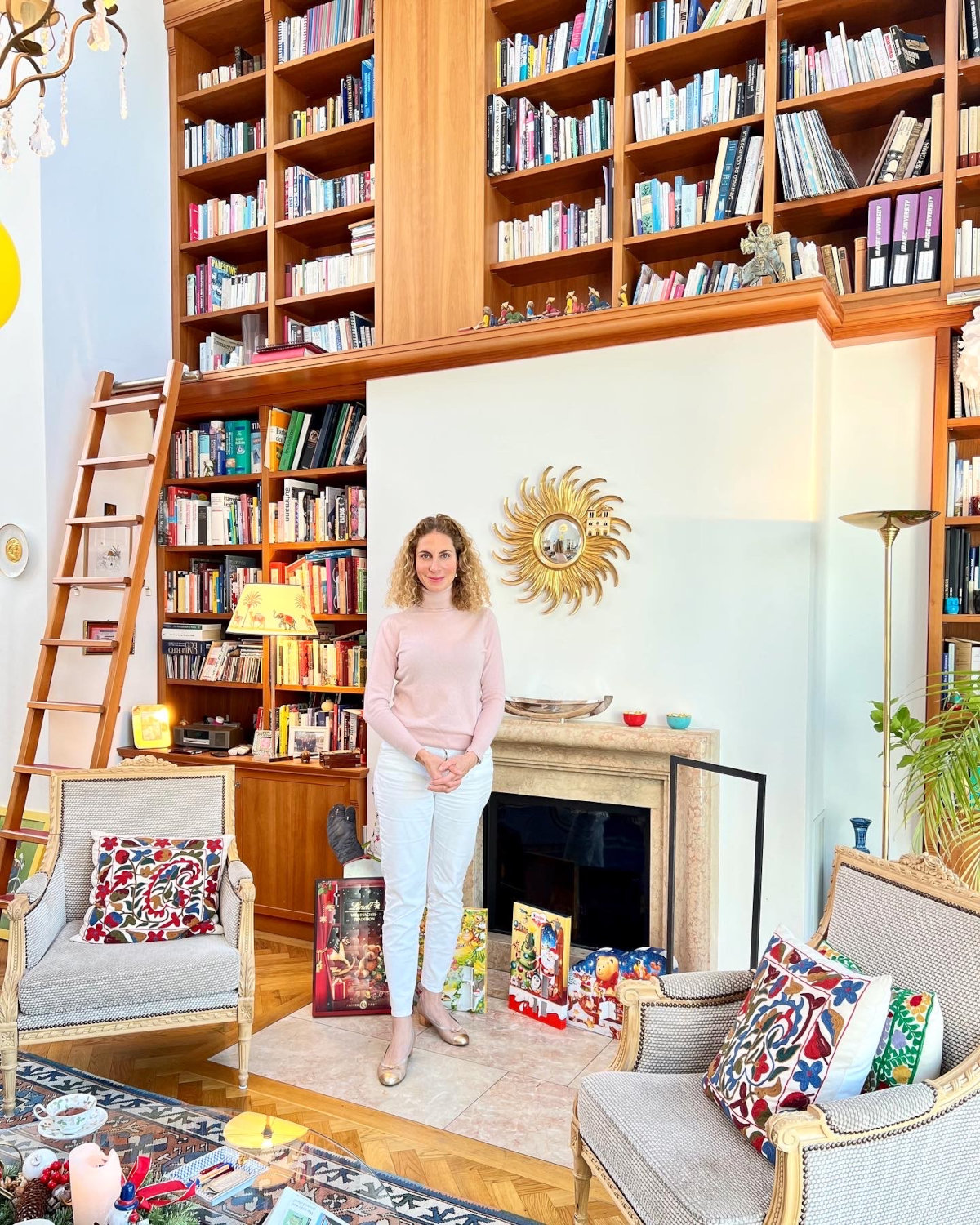

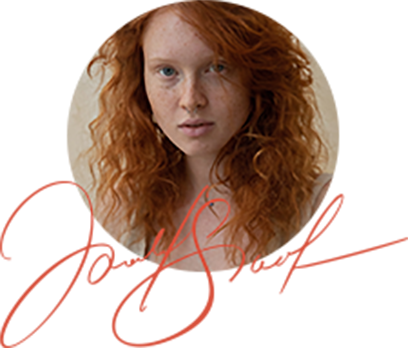
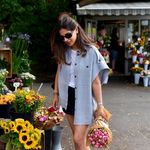

Leave A Comment